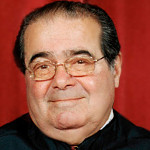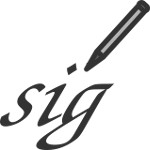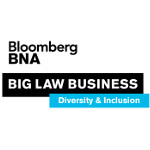By Mehjabeen Rahman
The Expert Institute
Being familiar with objections to expert testimony is the best way to protect the credibility of your expert’s testimony and also challenge that of the opposing expert’s. From discovery to trial, there are several occasions where objections as to an expert’s opinion are proper. Below is a list of possible objections to look over before your next case involving an expert witness.
Deposition Objections
An expert’s deposition is an important part of their overall testimony. In addition to its scientific and technical nature, it is sworn testimony that can be used to later impeach an expert witness at trial. It is important to note, however, that a deposition is still different than trial and there are a number of objections that can be properly raised with respect to an expert’s deposition testimony. For example, counsel can object when a question asks the expert for:
1. Legal analysis over factual information
Questions that ask expert witness opinions about the legal analysis of the case rather than purely factual information are objectionable on the grounds that the testimony qualifies as attorney work product protected under FRCP 26(b)(4)(C). The Advisory Committee notes “[t]he refocus of disclosure on “facts or data” [changed from “data and other information” in 1993] is meant to limit disclosure to material of a factual nature by excluding theories or mental impressions of counsel.”
2. Privileged information
It is important to note that any objection based on privilege must be made or it is waived for the party that failed to raise it on the record.
3. Testimony outside the scope of expert’s assigned task
As a general matter, questions that attempt to elicit information outside the scope of the witness’ expertise are improper. Bailey v. Meister Brau, Inc., 57 F.R.D. 11, 14 (N.D. Ill. 1972). For example, in a medical malpractice case involving a faulty device, an expert may be familiar with other similar devices and face questions about his or her opinion about devices from other manufacturers. When appropriate, counsel can make the objection that the question is outside the scope of the expert’s assigned task.
4. Confidential information protected from persons at the deposition
Under FRCP 26(c)(1), a party can move for a protective order of parts of an expert’s testimony that may require disclosure of sensitive and protected information. For example, Rule 26(c)(1)(G) says “[t]he court may, for good cause, issue an order to protect a party or person from annoyance, embarrassment, oppression, or undue burden or expense, including…requiring that a trade secret or other confidential research, development, or commercial information not be revealed or be revealed only in a specified way.” This is an important rule to remember when dealing with terms of a business contract or client medical history. The expert witness may answer when the certain persons designated in the protective order leave the deposition room.
5. Answers already provided by the expert earlier in the deposition
“Asked and answered” is a standard objection during depositions when the deponent is repeatedly asked a question they have answered. This is especially important if the question is asked for any other purpose except clarification of earlier testimony, for example if the question is repeated to harass or otherwise embarrass the witness.
6. Mischaracterization of earlier testimony
In some instances during an expert’s deposition, opposing counsel may phrase a question by misstating the expert’s earlier testimony. Especially where scientific or otherwise technical data and conclusions are concerned, it is important to clear these mischaracterizations up on the record when they occur.
7. Leading or coaching of the expert witness by opposing counsel
Another standard objection when an expert is under direct examination by opposing question. The expert is there to testify to factual matters and questions presented should not presuppose or suggest the answer. This sometimes occurs when the expert asks the interviewer for clarification about a question.
8. Improper form of a question
“Objection to form” is a vague and broad objection, commonly raised during depositions. Improper form objections can fall into many categories, where some jurisdictions require the objecting party to note a specific ground and others allow a general “objection to form.” A common example is when an expert is asked a compound question, meaning a series of multiple questions without giving the witness an opportunity to answer each individually. Whenever an objection to form is raised, the witness is still required to answer but the objection notes for the record that the form of the question was improper for being:
- Compound
- Prejudicial/Misleading
- Ambiguous
- Argumentative
- Calling for speculation
- Confusing
9. Opposing party’s failure to compensate the expert
The federal rules require that experts be properly compensated for providing deposition testimony under FRCP 26(b)(4)(E)(i)-(ii). When the deposition is at the request of opposing counsel, an objection is proper where an expert has not been fairly compensated for the separate time and work to prepare specifically for the deposition.
Pretrial and Trial Objections
1. Motions in limine
Typically, motions to exclude or otherwise challenge expert testimony will be raised during pretrial proceedings via motions in limine. The federal rules govern expert witness testimony under Rule 26 and provide the grounds for which an expert’s testimony can be excluded, including:
- For failure to properly designate an expert witness
- Failure to submit the expert’s report in a timely manner
- Failure to submit required documents like the expert’s CV or publications
- Failure to provide any notes or related material used by expert to form the expert opinion
2. Expert witness will not assist the trier of fact
Under the Federal Rules of Evidence 703, an expert’s opinion is admissible only if the witness’ expertise and testimony will assist the trier of fact in understanding the case.
3. Expert lacks the proper qualifications
Scope: A scientific background is not required for an expert to qualify as an expert witness. However, it is important to know the scope of expert’s knowledge as it applies to the case. For example, an individual that was a teacher for deaf children for over 30 years does not automatically render the witness an expert in deaf people’s heightened sense of sight as a general fact.
Credentials: If an expert’s particular background or expertise is not appropriate for the issues on which he or she is expected to testify, then a motion in limine is proper. Similarly, if there are issues with the representations on the expert’s CV, these are often raised pretrial as well.
4. Reliability of principle and methods (Daubert challenges)
Expert report methodology: A Daubert motion is the most direct way to challenge the reliability of an expert’s opinion. Daubert v. Merrell Dow Pharmaceuticals, Inc., 509 U.S. 579 (1993), and its progeny set the standards for the admissibility of expert reports and testimony. The Daubert Court set out factors to be considered in determining whether an expert’s report is reliable:
- whether the expert’s theory can and has been tested;
- whether the theory has been subjected to peer review and publication;
- the known or potential rate of error of the particular scientific technique;
- whether the technique is generally accepted in the scientific community
Kumho Tire Co., Ltd. v. Carmichael, 526 U.S. 137 (1999) expanded Daubert to include non-scientific expert testimony.
In 2000, the FRE 702 was changed to essentially codify the Daubert factors. For tips on successfully handling Daubert challenges, look here.
If the objections above are not raised in a pre-trial motions, they may still be raised when the expert witness is tendered at trial. Admissibility of expert witness testimony is governed by FRE Rules 702-705.
In addition to challenging the witness’ qualifications, scope of expertise and and reliability of principles and methods used to form the opinion, counsel can object when a question asked at trial:
- Assumes facts not in evidence
- Lacks the proper foundation
- Seeks an answer already admitted by stipulation. See FRE 403.
Expert witnesses are retained to explain technical or scientific subject matter and help the trier of fact to understand certain aspects of the case. FRCP 26 protects attorney-expert communications and governs the disclosure of expert witness testimony. FRE Rules 702-705 govern the admissibility of expert opinions.

 The renaming of George Mason University’s law school after Justice Antonin Scalia has erupted into a tense confrontation within its faculty: between professors embracing the move and scholars outside the law school offended by the association with the high court’s most influential conservative, reports
The renaming of George Mason University’s law school after Justice Antonin Scalia has erupted into a tense confrontation within its faculty: between professors embracing the move and scholars outside the law school offended by the association with the high court’s most influential conservative, reports  One in three U.S. board members and executives are “very concerned” that the climate of uncertainty and volatility may pose a significant threat to their corporate strategy, and more than three in four worry that management tends to use outdated assumptions in setting strategy,
One in three U.S. board members and executives are “very concerned” that the climate of uncertainty and volatility may pose a significant threat to their corporate strategy, and more than three in four worry that management tends to use outdated assumptions in setting strategy,  eSignLive will underwrite a complimentary
eSignLive will underwrite a complimentary  Akerman LLP
Akerman LLP According to Grant Gross from IDG News Service, the banking document record leak now are known as the Panama Papers included 11.5 million confidential documents dating from the 1970s through to late 2015 — 4.8 million emails, 3 million database format files, 2.2. Million PDFs, 1.1 million images and 320,000 text documents. All of these documents were from Panama Law Firm Mossack Fonseca.
According to Grant Gross from IDG News Service, the banking document record leak now are known as the Panama Papers included 11.5 million confidential documents dating from the 1970s through to late 2015 — 4.8 million emails, 3 million database format files, 2.2. Million PDFs, 1.1 million images and 320,000 text documents. All of these documents were from Panama Law Firm Mossack Fonseca. Recommind
Recommind General counsel and their legal teams play a unique and important role in the conversation regarding Diversity & Inclusion in the legal profession – as the buyside of legal services, they are well-positioned to drive and influence the quality of legal services they receive. They are also currently moving more legal work in-house and the department’s ability to ensure diversity of ideas and thought leadership within their own teams is critical.
General counsel and their legal teams play a unique and important role in the conversation regarding Diversity & Inclusion in the legal profession – as the buyside of legal services, they are well-positioned to drive and influence the quality of legal services they receive. They are also currently moving more legal work in-house and the department’s ability to ensure diversity of ideas and thought leadership within their own teams is critical. A fundamental principle of contract law is that a written contract is an agreement in writing that serves as proof of the parties’ obligations, writes
A fundamental principle of contract law is that a written contract is an agreement in writing that serves as proof of the parties’ obligations, writes